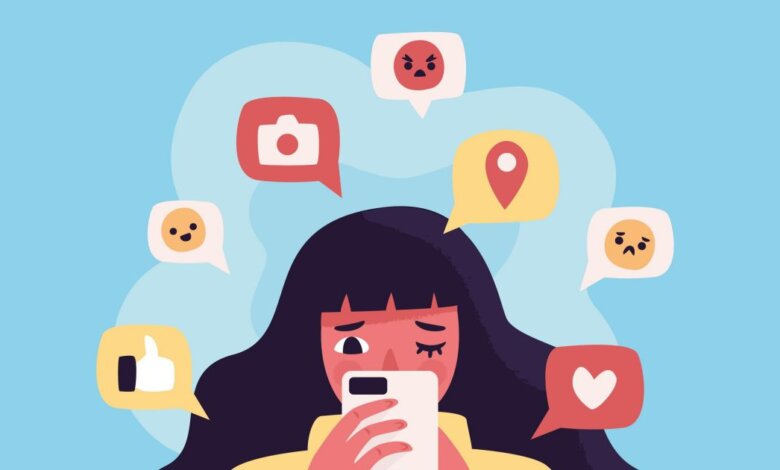What is obsessive-compulsive love disorder?

What is obsessive-compulsive love disorder?
Love is an emotion that is familiar to many people. I feel love for my pets, friends, and family. If your feelings of love and affection are accompanied by attachment and a desire to control others, you may have obsessive-compulsive love disorder.
obsessive love disorder
Obsessive-compulsive love disorder is a disease in which people have obsessive feelings that they mistake for love for others. People with obsessive-compulsive love disorder are addicted to their feelings, no matter who the other person is.
Obsessive-compulsive love disorder is no longer classified as a mental illness.
This is the “Diagnostic and Statistical Manual of Mental Disorders” (commonly known as DSM-5). This is because there is debate as to whether obsessive-compulsive love disorder can be called a mental illness.
Although the DSM-5 currently does not specify criteria for obsessive-compulsive love disorder, it is a real and debilitating condition that can interfere with daily life if left untreated. Additionally, relationships with loved ones may become dysfunctional.
In extreme cases, it can even pose a threat to the object of one's attachment, especially if the feelings are not reciprocated.
Research has shown that obsessive-compulsive love disorder is more common in women than in men.
Symptoms of obsessive love disorder
Although not classified as a mental illness, obsessive-compulsive love disorder has certain defining characteristics that can help you identify the disorder.
Symptoms of obsessive-compulsive love disorder vary from person to person, and symptoms can look very different between two people living together.
- Always seeking evaluation from the person you love
- Relentlessly keep in touch with the person you love
- Ignoring the personal boundaries of the object of your affection.
- be dominant towards someone you like
- Feeling extremely jealous that a loved one may have an affair with someone else
- I feel overprotective of the person I love
- Feelings for the other person become so overwhelming that it interferes with daily life.
- Low self-esteem, especially when it feels like love is not reciprocated.
- Refuses social activities that do not involve the object of affection.
- Feeling extremely monopolistic of the other person's time, space, and attention
- Feeling like you want to control the actions and words of the person you are supposed to love.
- Feeling insecure about your relationship with this person
How to recognize obsessive-compulsive love disorder
There are no specific criteria for identifying obsessive-compulsive love disorder. However, if symptoms appear, doctors first perform a series of tests and interviews to rule out other mental illnesses.
Obsessive love disorder can often be a symptom of a mental illness.
However, it may be difficult to identify in cases where the condition does not coexist with other mental illnesses. While some researchers are working hard to have obsessive-compulsive love disorder recognized as a mental illness, others say it simply doesn't fit the definition of a mental illness.
Causes of obsessive love disorder
Love obsession is not classified as a mental illness, so it is difficult to identify the cause. However, it has also been linked to other mental illnesses, such as post-traumatic stress disorder, obsessive-compulsive disorder, and borderline personality disorder.
Obsessive-compulsive love disorder is becoming more recognized as a symptom or sign of the presence of a pre-existing condition in people with these disorders.
Attachment disorders are most strongly suggested to be triggers for obsessive-compulsive love disorder. When a person is unable to form healthy attachments to others, it affects the quality of their relationships and the way they interact with others.
Some people with attachment disorders may feel distant from potential or current partners. Also, some people have attachment disorders that make them become attached to people with whom they have a connection.
How is love obsession treated?
In the case of obsessive-compulsive love disorder, doctors focus on treating pre-existing conditions to alleviate symptoms.
If no other mental illness is linked, your doctor or health care professional will need to create a personalized treatment plan for you. Medication, psychotherapy, or a combination of both may be used.
In psychotherapy, the therapist first tries to identify the root cause of your obsessions. It could be because of a traumatic past relationship with a family member or a really bad breakup.
A therapist will help you identify your obsessions and behaviors and teach you techniques to overcome them.
How to deal with obsessive love disorder
Dealing with obsessive-compulsive love disorder can be difficult. However, in many cases, if you notice that you are experiencing symptoms of OCD, it could mean that you are living with a mental illness. Don't be embarrassed to talk to your health care provider to ensure you get the support you need.
don't deny your feelings
If you notice that your love for another person feels like an obsession, don't ignore it in the hopes that it will go away. In most cases, the more you ignore it, the more likely it is.
Suppose you or someone you care about is living with obsessive-compulsive love disorder. In these cases, group therapy may be helpful, especially if the triggers for symptoms are related to attachment issues with family or friends.
If you are in the early stages of treatment, we will introduce ways to manage the symptoms.
- With OCD, the first and most important step is admitting that you have a problem and need help.
- Talk to the person you love about what's going on, and try to distance yourself from them for a while until you can better understand your feelings.
- Spending quality time with other friends and family can help you remember what healthy love looks like.
- Engage in productive pastimes, such as exercising frequently or taking up a new hobby, such as painting.





